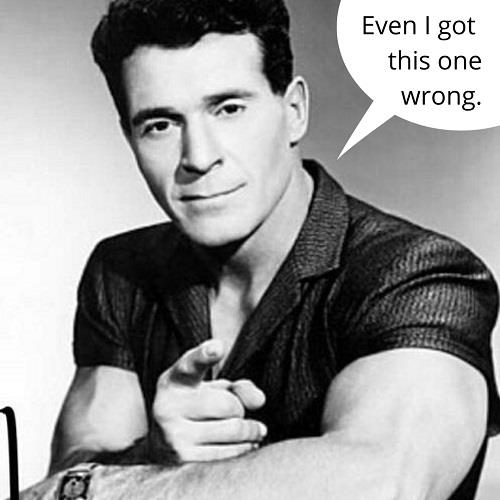Even Jack Lalanne can be wrong sometimes. (We still love ya, Jack.)
Going through an article I had saved, he is quoted as saying the following about exercise:
“It’s a pain in the gluties. But you gotta do it. Dying is easy. living is tough. I hate working out. Hate it. But I like the results.”
– Jack Lalanne (Wall Street Journal, 2007)
This is the wrong approach. “Just Do It” just won’t do it anymore.
His thoughts here are reflective of old ways of thinking, which we are finding out more and more each day are wrong in many areas of life.
Certainly, for the precious few with monumental levels of discipline the “It sucks, but do it anyway” approach to exercise probably works just fine. But what works for a fraction of people is nothing to base recommendations for the masses on.
The science of behavior shows – quite clearly – that in the most basic terms we are drawn to enjoyable experiences and repelled by unpleasant ones. Duh.
It sounds obvious when you put it like that. But the force behind the emotions connected to enjoyment and revulsion are incredibly powerful when it comes to molding behavior.
The only way for the overwhelming majority of people to stick with a regular pattern of physical activity and gain fitness benefits is to find enjoyment in physical activity that also happens to be challenging enough to create some physical change.
There are many ways to do this from finding a sport or challenging solo activity (like rock climbing, kayaking, paddleboarding, etc.) to physically active games like bocce or frisbee football or golf.
When it comes to exercise itself, the Funtensity approach to exercise either in an individual workout or in a small group includes elements of reactivity and friendly competition (with yourself to better your “score” on an exercise or with others.)
The old psychology from Jack Lalanne’s era on motivation was wrong, but it was all we had at the time. Here is a wonderful quote from the book The Joy of Movement by Kelly McGonigal.
If you are willing to move, your muscles will give you hope. Your brain will orchestrate pleasure. And your entire physiology will adjust to help you find the energy, purpose, and courage you need to keep going.
Beautifully said. This is the new understanding of motivation. “Just Do It” just won’t do it anymore.

